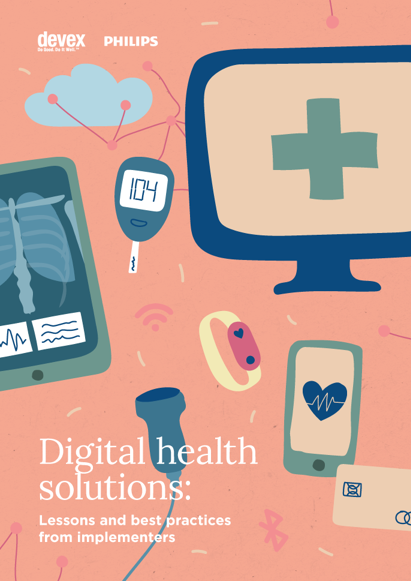

About
Digital technologies offer tremendous promise to reduce costs and expand global access to healthcare. The international community recognizes that these technologies are critical to achieve both the Sustainable Development Goals and Universal Health Coverage.
Yet, the actual implementation of digital health technologies remains complex and challenging, especially in low-resource settings. This Devex special report, produced in partnership with Philips, seeks to contribute to important digital health conversations by examining digital health solutions at the implementation level. In doing so, we hope to identify and illustrate a series of common challenges organizations face when implementing digital health solutions and best practices that drive scalable and successful projects.
What's inside
- What are the key factors for digital health project sustainability?
- What are the top barriers to successful digital health project implementation?
- What are some of the best practices in implementing digital health solutions?
- What are the key factors for digital health project sustainability?
- What are the top barriers to successful digital health project implementation?
- What are some of the best practices in implementing digital health solutions?

42% of interviewees say the lack of infrastructure and connectivity hinders implementation both at the national and local level.
73% of interviewees say that limited technological literacy and understanding remains a key barrier to digital health project implementation.





